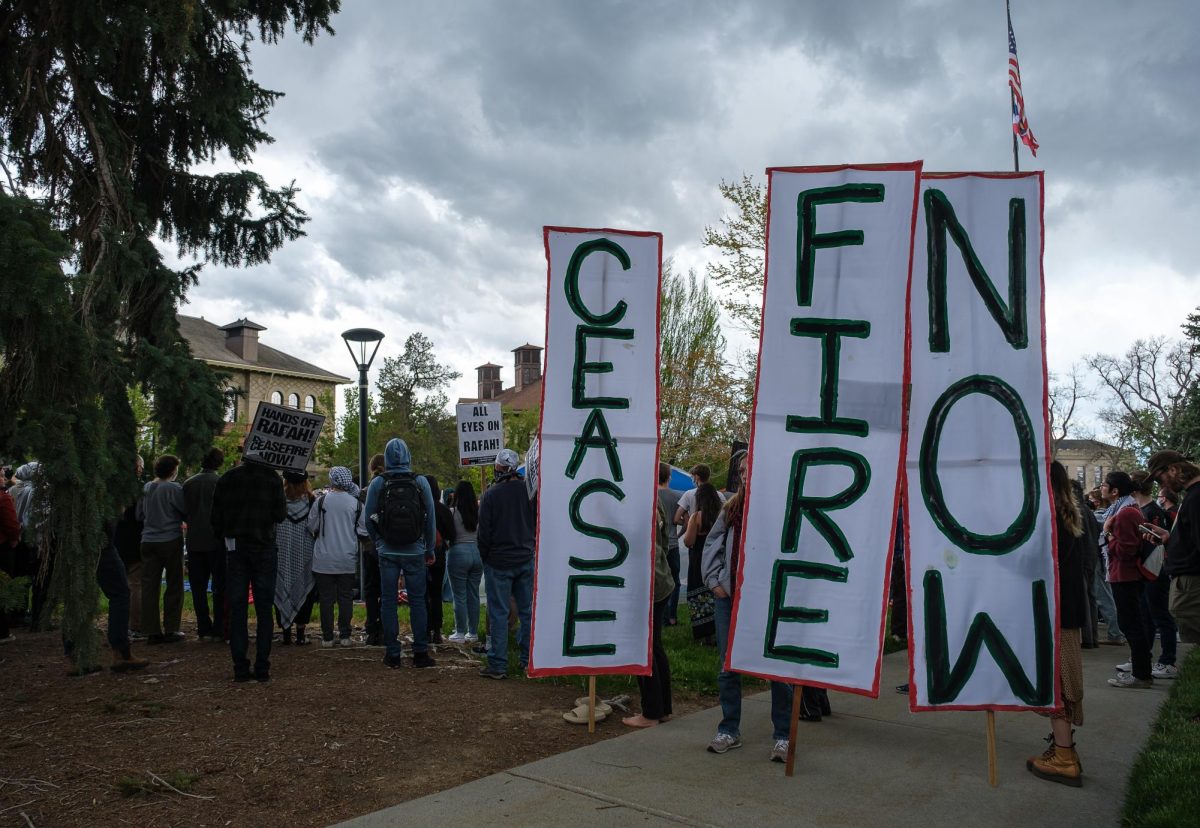Over the last few weeks, universities nationwide have borne witness to student-run protests in support of a free Palestine.
The University of Utah is no exception to this, with students hosting their own protests on campus earlier this month.
These protests have been subject to criticism in all forms. Opponents claim that these protests are violent, unnecessary and, most interestingly, anti-American.
This claim has formed in response to recent events at the University of North Carolina. During a recent protest for Palestinian solidarity, members of a local fraternity defended an American flag from being torn down by protesters.
This elicited responses from both sides, with some proudly praising the men who defended the flag as true patriots.
These individuals claim that these men embody exactly what it means to be a true American while shaming the protesters for being far from it. The White House itself has expressed similar views.
Those who share this sentiment couldn’t be more wrong about what it means to be an American. From this country’s history to its original values, it has always been a nation that has fought, frequently through protests, for equality and justice.
History of Unrest
Political unrest has been a staple of American culture since the day it declared its independence in 1776.
The very creation of this country came in the form of the American Revolution, a violent war that led to the secession from Great Britain.
This was only the beginning of American protests. It symbolized the birth of a culture defined by its commitment to challenge the current political state.
It took less than 20 years for the next major protest, the Whiskey Rebellion, in 1791. Not to mention the War of 1812, in which New England considered seceding from the Union.
Continuing into the 20th century, the Triangle Shirtwaist Fire elicited protests nationwide, fighting for better working conditions. Along with other labor strikes, protests in the economic sphere are also deeply rooted in American history.
The protests of the women’s suffrage movement brought forth the 19th Amendment, which gave women the right to vote, a massive leap forward for gender equality.
The Civil Rights Movement consisted of countless protests, such as the bus boycott, which paved the way for equality in the United States.
The protests that occur today are no different from those that occurred in the past. They are a continuation of a longstanding American tradition.
Individuals often seem to forget that most of these protests are targeted at America by Americans. Criticizing this country is in no way anti-American — it’s the opposite. To be a true American, you must critique and fight for the country you belong to.
The “Right” Way to Protest
It is common for individuals who may support a movement themselves to claim that violence is where they draw the line.
The recent Palestinian solidarity and Black Lives Matter protests have faced this criticism.
Those who share this view are naive to what gives protests their power: disruption.
While violence can sometimes be extreme, it is often necessary for there to be a proper incentive for political change. The tendency to reject the urge to fight often comes from those who never had to in the first place, unable to comprehend that it was never a choice for others.
The Civil Rights Movement, though primarily revered for its peaceful philosophy, was incredibly violent at times. Although the majority of people now support the movement, at the time, it also faced violent opposition.
Violence cannot be the only answer, but to claim that a protest is invalid because it is inconvenient to others is to miss the entire point of protesting.
Protests are supposed to disrupt the daily lives of individuals, make them stop and question their beliefs and inspire action that leads to change.
The Dark Side of Freedom
Freedom is a supposed staple of American greatness. Despite this, whenever individuals attempt to exercise this right to freedom, they are met with disdain.
There is a dark side to freedom. It is ugly and violent.
However, contrary to popular belief, the freedom to challenge America itself defines a true patriot.
It is the reason we granted ourselves this freedom at all.
American heroes such as Martin Luther King Jr., Abraham Lincoln and George Washington understood this point very well.
History now praises these men for their actions. It is easy to forget that, in their time, many viewed them as villains for attempting to exercise their freedom to challenge the status quo.
Justice for All
We look back on the protests of history and praise the individuals who stood up to fight for what they believed was right.
We ignore the extremes they might have endured as we simultaneously reap the benefits of their actions.
Yet miraculously, when we are actively a part of what will be history, we point fingers and shun those willing to fight.
What gives Americans their culture has never been their disdain for the current state of affairs but their unwavering willingness to challenge it.
There is nothing traditional about American culture except its tendency to change for the better.
The individuals willing to protest will always have a much deeper connection to what it truly means to be an American.




